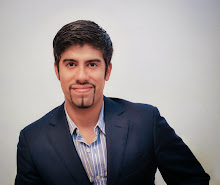"To master people takes force, but to master yourself takes strength."These words of Lao Tzu that I encountered correspond very well with the events of my life during this week. Today I'd like to explore the topic of the self discipline, specifically about how we react about our feelings; feelings that appear as a result of interactions or situations in our life that more than once take over ourselves and dominate our mind and soul. I like one approach that I encountered not so long ago, I am talking about the Logotherapy created and developed by neurologist and psychiatrist Viktor Frankl after his time in a concentration camp during the holocaust in the decade of the 40's.
His work is very comprehensive and talks about the search of meaning of ones life. I'd like to borrow a prahse from him that relates to our topic today.
"Everything can be taken from a man but one thing: the last of the human freedoms – to choose one's attitude in any given set of circumstances"The own experience of the concentration camps of Frankl brought him to the conclusion that it is indeed within us to choose how to react to the external stimuli, and with stimuli I mean the conditions from everyday's life; like: the weather, the season of the year and so on; as well as the ones that come from the people which whom we interact daily. It has of course happened to all of us; the classic angry driver that seems mad about something entirely banal, that yells at us because he just feels so, and we are the ones who end up somehow affected by the mood of this non-happy driver (or pedestrian). Has it happened to you? I bet it has.
Choosing how to respond to such a situation is indeed possible yet not easy at all. It requires practice and the will to change the paradigm behind it. I have heard many times people reacting to these situations using as a shield the idea of being taken advantage of by this random stranger and in a futile attempt to make themselves not the victim, engage into a fight with no winners. One does not need to go through the experience of Frankl to put this idea into practice, I guess is more a matter of giving it a try. Recently on a Job interview someone asked me what makes me very mad, I answered that not many things, and that is hard for this events to combine to make me loose the control. I do claim to be the Dalai lama or anything like it simply that I by own experience have tried to keep my emotions in control, to observe that is easier to talk to the other person as well as to come to more neutral and sometimes better arguments in the case one is arguing at the moment. Anyone can relate to the idea that when we are too happy or too angry one should neither make promises nor throw arguments to the people, in both cases the promises are those we maybe did not really weight as well as the arguments against someone, they can contain something very aggressive of mean, and is something that being calmed we would not normally say to that person.
All our reactions and behaviors towards our daily situations are the result of a mental process, a process that is respectively the result of a long training through most of our life. A Training that taught us how to deal with unpleasant and not so much unpleasant situations. Much of these lessons come from our parents, and were molded as we kept growing up, They normally stick around for a long time, they are our personality, but like many other features of the human being this is one we have the power to change when we deem it necessary. Is a concept known as Neuroplasticity and means nothing else than the capacity of the brain to rewire itself, to change the configuration that it already has for a new one, one where we are the architects and not the circumstances that created and reaffirmed the old one.


The great quest of mastering oneself